Uzbekistan to update sanitary rules and standards
On June 1, under President Shavkat Mirziyoyev, a discussion was held on the implementation of the tasks set and future plans in the healthcare sector.
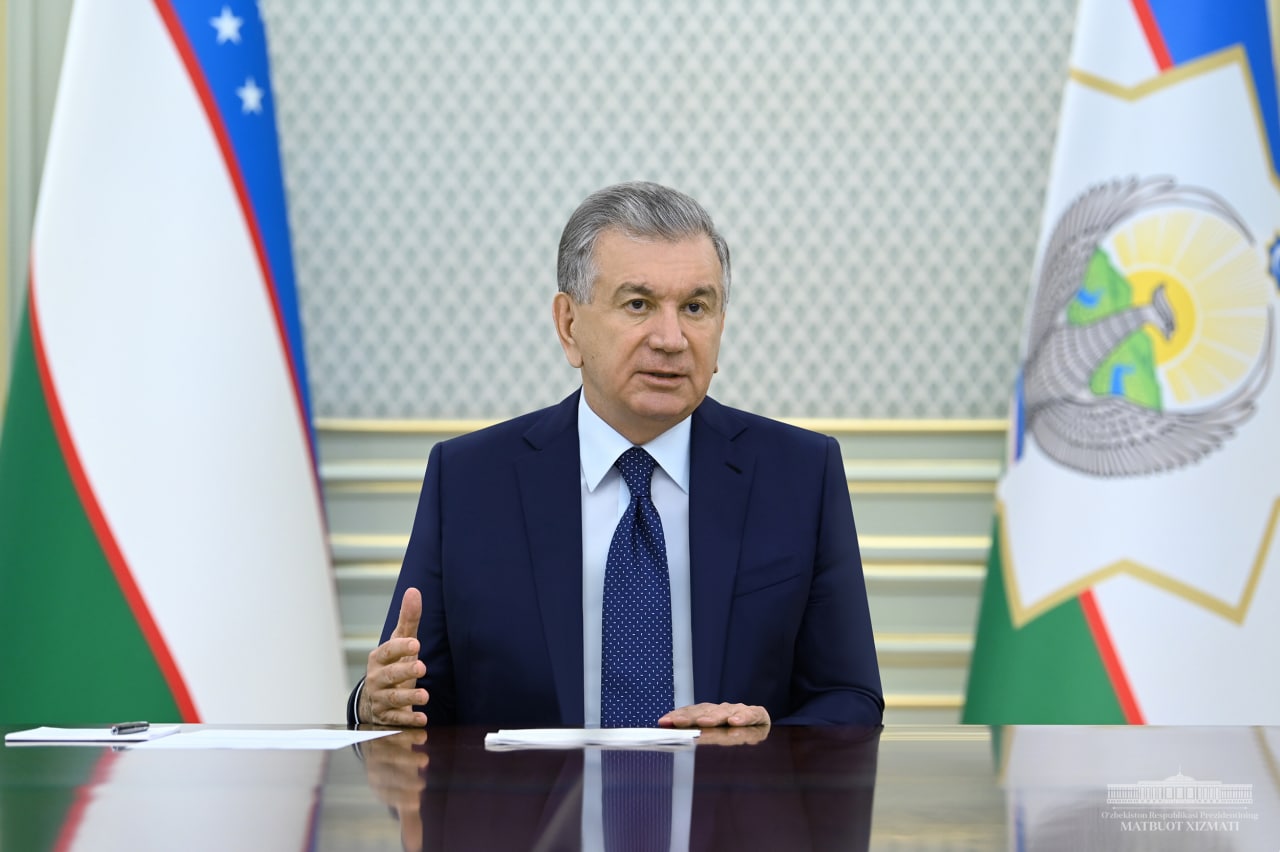
Photo: Presidential press service
On March 18 this year, the head of state held an open dialogue with medical workers. Based on the problems and proposals discussed at that meeting, a number of tasks were set to introduce modern methods of treatment, further bring medical care closer to the population, and increase the wages of workers in the sphere. Since the beginning of the year, 85 family medical posts and polyclinics have been opened locally, which has improved the access of more than 700,000 people to medical services. Additional types of high-tech operations have been introduced in the regions: 27 in surgery, 7 in endocrinology and 14 in cardiology.
In recent months, more than 25,000 socially vulnerable citizens have been provided with medical assistance at the expense of the state health insurance fund. In Karakalpakstan, Jizzakh, Kashkadarya, Namangan, Surkhandarya and Ferghana regions, 87,000 people underwent targeted medical examinations. Since today, the monthly salary of medical workers has increased by 30%.
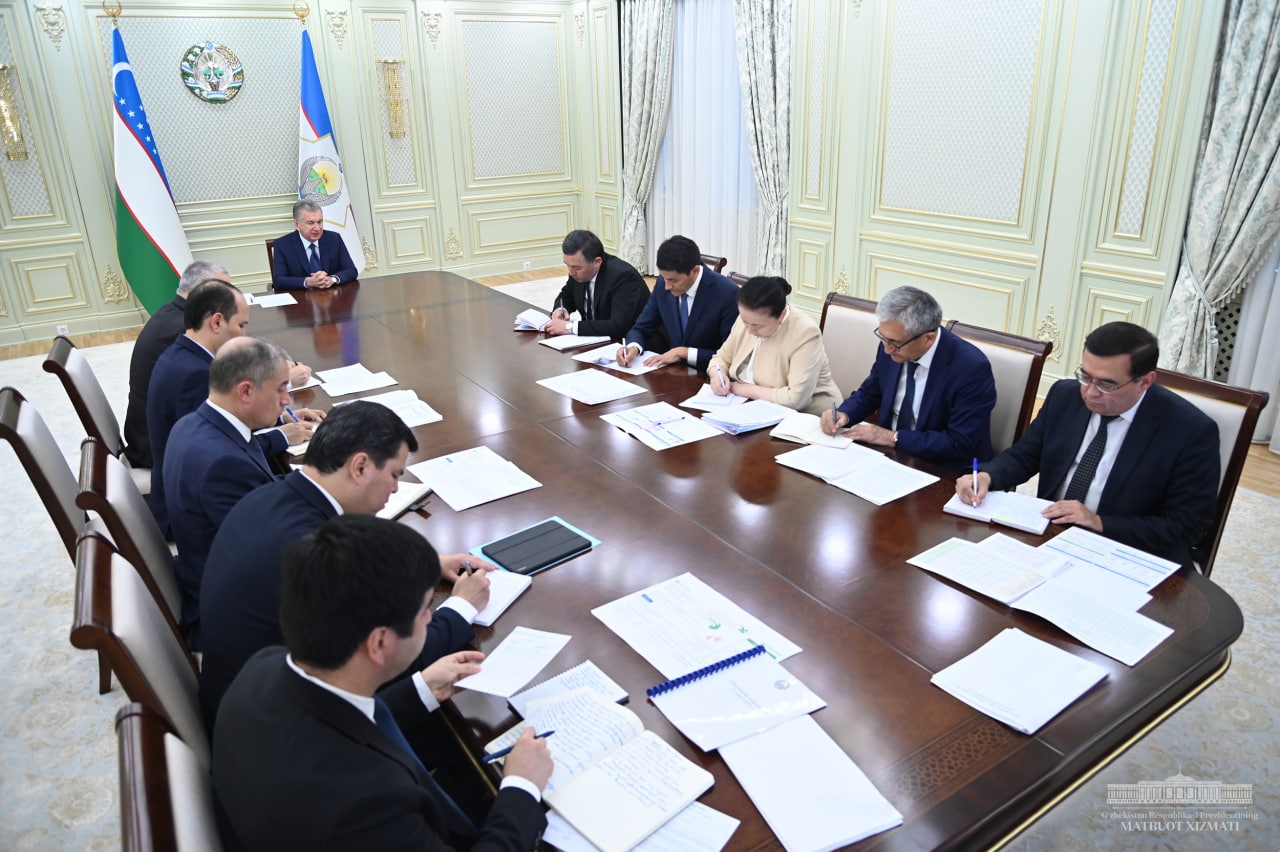
Along with the ongoing work, the upcoming tasks were discussed at the meeting.
“Based on the principle “in the name of the honor and dignity of a person”, we have adopted many decrees and resolutions in recent years. We have taken measures to increase the salaries of medical workers, despite global problems. The system should work everywhere, including the most remote villages. It is necessary to take care of the health of every citizen,” the head of state said.
Responsible persons provided information on improving the management and material and technical conditions of the sphere, changing treatment protocols, expanding the health insurance system, and developing medical education. Particular attention is paid to the primary link, tasks have been set to open another 51 family medical centers and polyclinics by the end of this year, create medical centers in a thousand mahallas, and conduct targeted screening of the population. The progress of work to improve the quality of emergency medical care is considered.
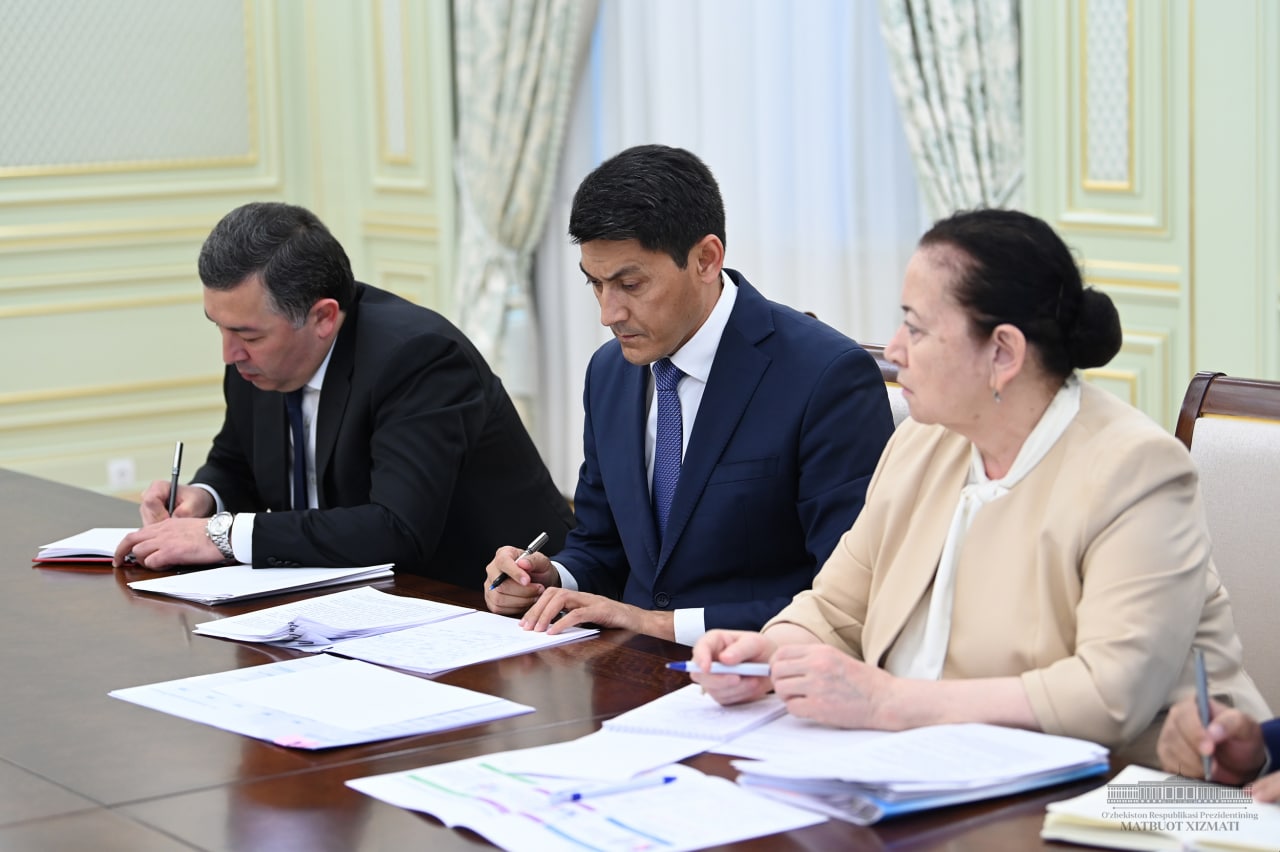
Instructions were given to increase the number of types of high-tech operations in regional hospitals to 250 with advanced training of their medical staff, and fully introduce a new system of preferential treatment. The President separately touched upon the issue of digitalization of the sphere. In accordance with the instructions given earlier, the relevant infrastructure of medical institutions is being updated. Hospitals in the regions are provided with computers and a local network. In accordance with international standards, a unified classifier, register and data exchange program are being developed.
The meeting emphasized the importance of gradual digitalization and integration of all parts of healthcare, modern equipment of institutions, increasing the volume and expanding the range of paid services. In 191 district and city central hospitals, children's intensive care units were organized, in 208 multidisciplinary polyclinics and 71 family polyclinics in the city of Tashkent - children’s units. The head of state pointed to the need to open similar departments in other regions, as well as to develop the activities of centers for obstetrics and gynecology, reproductive health of the population and screening centers.
Instructions were given regarding the transformation of the sanitary and epidemiological system, updating sanitary rules and standards, and preventing infectious diseases. Each Deputy Minister of Health is tasked with developing “roadmaps” in the areas under their supervision.
Recommended
List of streets and intersections being repaired in Tashkent published
SOCIETY | 19:12 / 16.05.2024
Uzbekistan's flag flies high on Oceania's tallest volcano
SOCIETY | 17:54 / 15.05.2024
New tariffs to be introduced in Tashkent public transport
SOCIETY | 14:55 / 05.05.2023
Onix and Tracker cars withdrawn from sale
BUSINESS | 10:20 / 05.05.2023
Latest news
-
Massive embezzlement uncovered at Andijan State University: Rector, chief accountant and other officials jailed
SOCIETY | 20:36 / 07.07.2025
-
Uzbekistan's economy expands 6.8% in first half of 2025
SOCIETY | 20:34 / 07.07.2025
-
Heatwave triggers nearly 250,000 emergency calls across Uzbekistan
SOCIETY | 20:31 / 07.07.2025
-
Why medicines cost more in Uzbekistan? Pharmaceutical Agency chief explains
SOCIETY | 18:21 / 07.07.2025
Related News
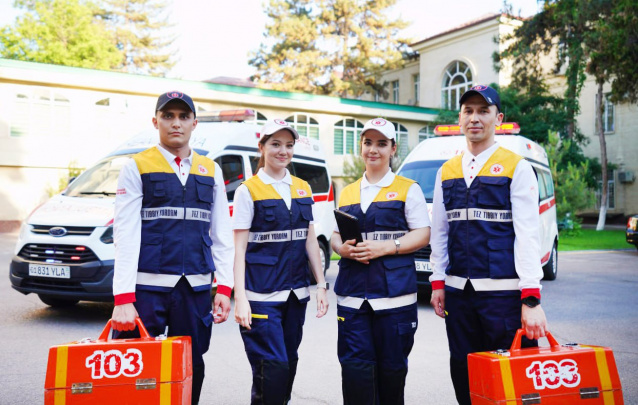
20:31 / 07.07.2025
Heatwave triggers nearly 250,000 emergency calls across Uzbekistan
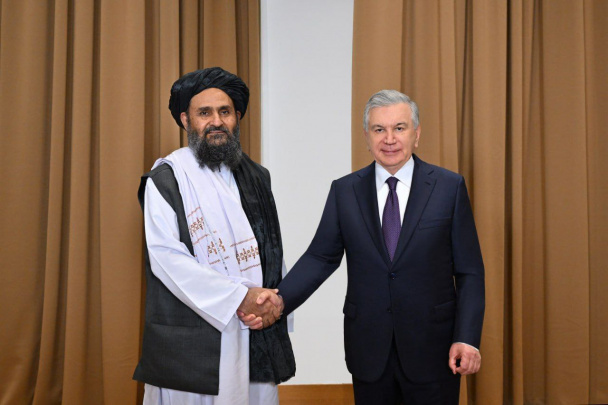
20:01 / 03.07.2025
President Mirziyoyev and Afghan Deputy PM discuss deepening economic ties

19:10 / 02.07.2025
Uzbekistan and Azerbaijan to accelerate joint project for electricity export to Europe
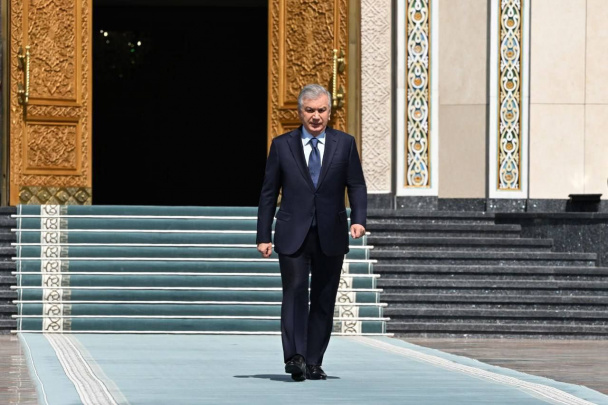
11:50 / 02.07.2025



